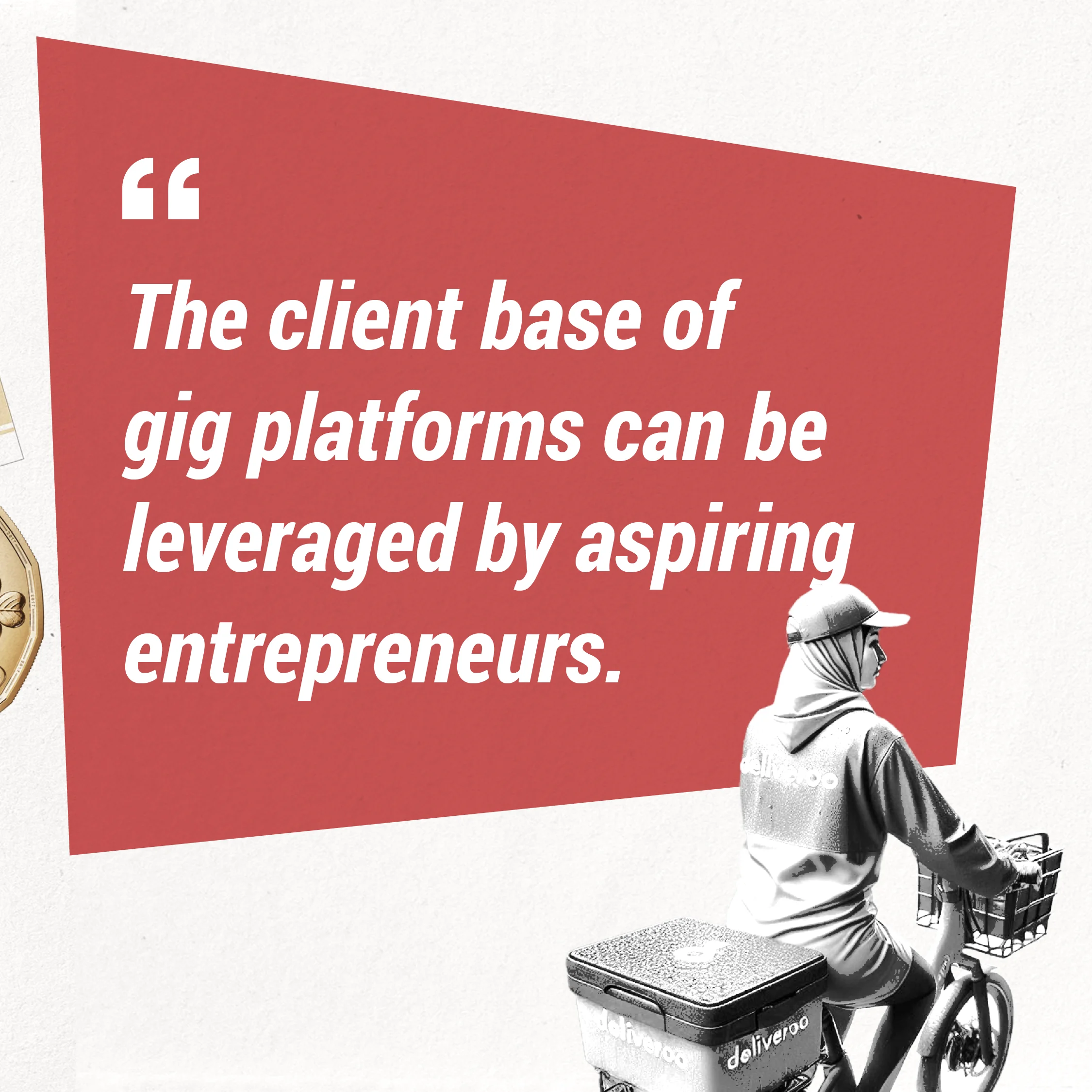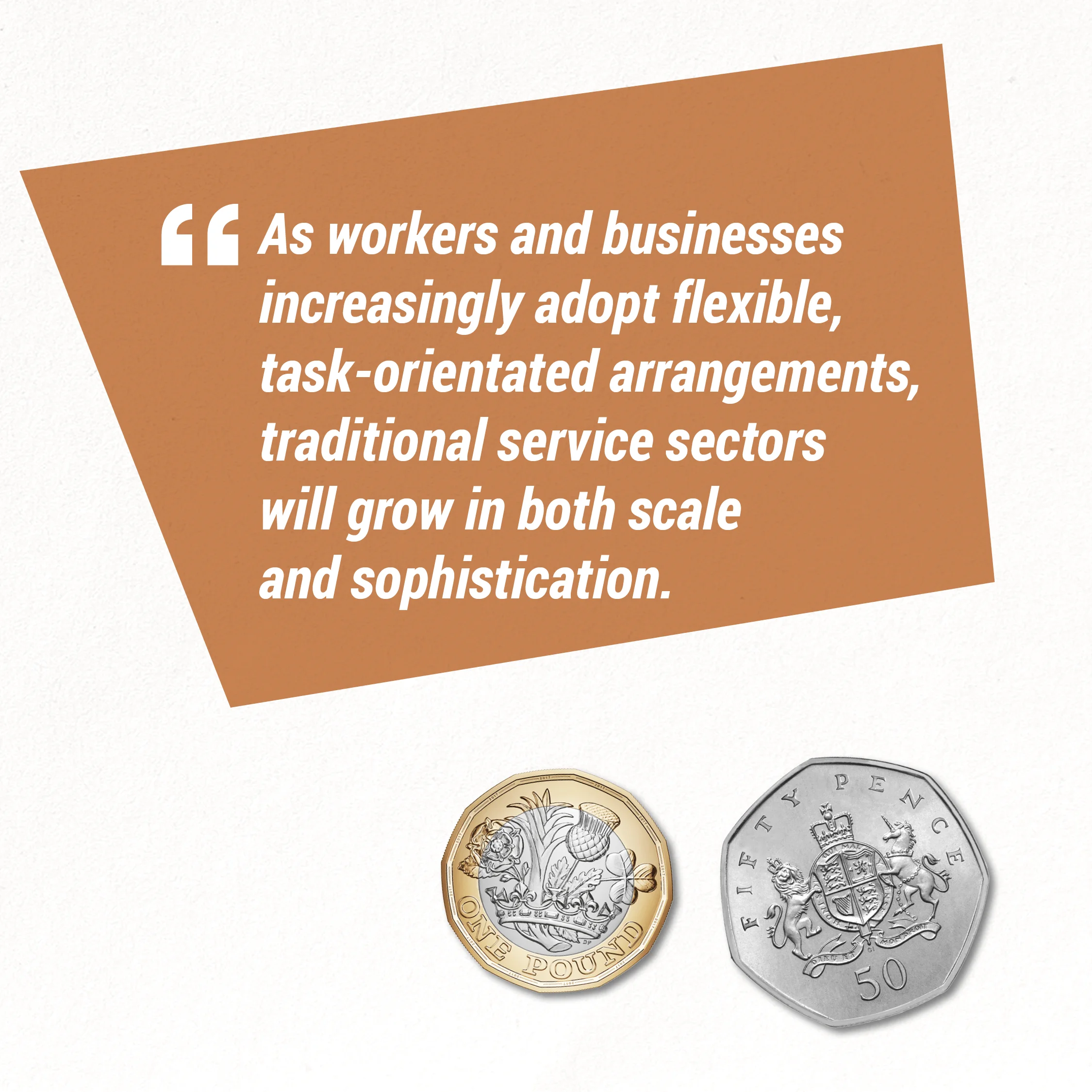Can the gig economy boost entrepreneurship?

Contents
Uber, Airbnb, TaskRabbit, Just Eat – these are just a few of the many online gig platforms that have become an integral part of our lives but how have these platforms impacted those who have traditionally worked in these sectors? How do taxi drivers adjust when new ride-hailing services emerge in their city? How does the hospitality industry handle the rise of short-term rental platforms?
This is one of the key questions Dr Aaron Cheng, Department of Management at LSE, set out to investigate in his new research paper, ‘‘Skill-Biased Technical Change, Again? Online Gig Platforms and Local Employment,’’ published in Information Systems Research.
"As a researcher in information systems and innovation, I’ve always been fascinated by how technological advances reshape our work and daily life," he says. "Labor and platform studies remain divided on whether gig platforms create more opportunities or displace existing workforces. The contrast between the gig economy’s rapid expansion and the divergent responses from scholars and policymakers motivated me to conduct this research."
To investigate the impact of the gig economy on incumbent workers, Dr Cheng and colleagues exploited the staggered expansion of TaskRabbit – a popular location-based platform enabling matches between workers and clients for services such as cleaning – into US metropolitan areas between 2008 and 2018. They then analysed changes in the supply of workers in the housekeeping industry before and after the platform’s introduction.
The researchers chose to focus on the housekeeping industry as it represents a large section of the service industry that often flies under the radar. It also offers a distinct skill-based division of labour between frontline workers who handle manual in-person work and managers who coordinate workloads and oversee the frontline workers.

A redistribution of workers
The researchers found a significant decrease of 7.1 per cent in the number of housekeeping workers in locations where TaskRabbit operated, compared to locations where it hadn’t been introduced. This decrease was predominantly driven by a decline in the number of middle-skilled workers (ie, first-line managers, supervisors) whose tasks could easily be automated by TaskRabbit’s matching algorithms but not low-skilled workers (ie, janitors, cleaners) who typically perform manual tasks.
Crucially, the researchers found the entry of TaskRabbit did not crowd out middle-skilled housekeeping workers, cause unemployment or force them into other related occupations. Rather, they found a significant movement of these workers towards self-employment within the same housekeeping industry.
Interestingly, they discovered that this rise in self-employment primarily fell under the "incorporated" category, where entrepreneurs start their own formal businesses, as opposed to the "unincorporated" category of freelancers and independent contractors.
Dr Cheng was shocked by these findings. "Initially, we believed the barriers to starting a business would discourage this path but upon examining the practical context, it began to make sense – housekeeping requires relatively low upfront investment compared to high-tech industries, and the client base of gig platforms can be leveraged by aspiring entrepreneurs. This unique pathway to business ownership was something we didn’t anticipate at the outset."

A nuanced debate on technology
Dr Cheng hopes the finding that online gig platforms can lead to a redistribution of labour rather than unemployment will add nuance to the ongoing debate about the implications of these platforms and other emerging technologies.
"Too often, policymakers and the public reduce technology’s role to a binary – either substituting for human labour or complementing it. This oversimplification divides technology advocates from sceptics and drives businesses and policy agendas towards either full adoption or strict regulation. Such binary framing gives rise to polarisation and hinders consensus in both managerial practice and policymaking," he says.
Going forwards, Dr Cheng believes that rather than solely protecting incumbents or ensuring gig workers’ security, policymakers should not overlook the self-selection inherent in gig work and the potential for entrepreneurial ventures. "Policymakers should support small business creation by offering training, funding and mentorship programmes to help former employees transition to self-employment. Promoting flexible benefits – portable systems that cover both gig workers and new business owners – can also ensure security without compromising independence," he notes.

Changing the world of work
As technology continues to develop, Dr Cheng warns we must not underestimate the impact it will have on employment, transforming the nature of work and introducing a focus on tasks rather than traditional jobs. "As workers and businesses increasingly adopt flexible, task-orientated arrangements, traditional service sectors will grow in both scale and sophistication. This shift will allow for greater adaptability and efficiency, enabling workers to engage in a variety of specific tasks that align with their skills and preferences."
Advancements in artificial intelligence (AI) and digital technology will be central to this shift and matching algorithms, which are already being used in the gig economy, can ensure optimal matches between workers and clients.
Nonetheless, Dr Cheng acknowledges the criticisms often made about the gig economy: job insecurity, fewer rights and benefits for workers, and potential exploitation. He accepts there is a need to remain cautious while also recognising the potential benefits these work models can offer.
"By maintaining a balanced perspective, we can work towards solutions that minimise risks through effective policies and industry regulations while maximising the benefits for individuals and society as a whole." Skills development, training programmes and resources to help workers transition into new roles, and regulations to ensure fair wages and job security across all levels of the gig economy can make a big difference.
If it is embraced and used appropriately with the necessary safeguards, Dr Cheng believes the gig economy, empowered by AI and technological innovations, holds the promise of creating a more dynamic and inclusive labour market. "One which fosters innovation, enables self-employment and ultimately reshapes local economies in ways that benefit a broader segment of the workforce."
Dr Aaron Cheng was speaking to Charlotte Kelloway, Media Relations Manager at LSE.
Download this article as a print-optimised PDF [304KB].
"Skill-biased technical change, again? Online gig platforms and local employment" by Guo, X, Cheng, Z (Aaron), and Pavlou, P A was published online in Information Systems Research in 2024.


